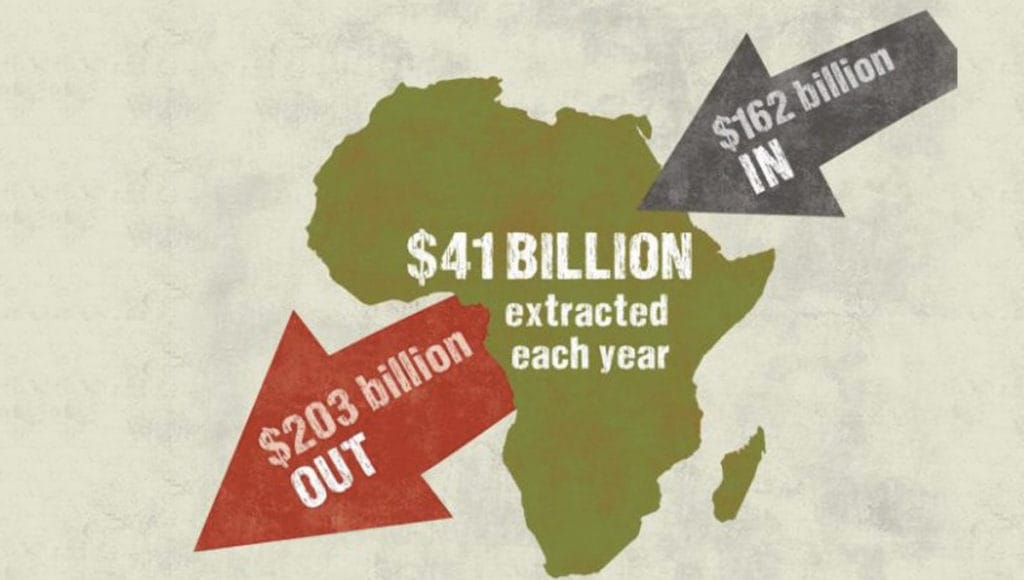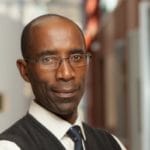
Why Africa is actually a Net Creditor to the Rest of the World | Interview Series with Léonce Ndikumana
In the first part of the interview series with Léonce Ndikumana, Professor of Economics at the University of Massachusetts Amherst and Director of the African Development Policy Program for the Political Economy Research Institute, we examine how foreign direct investment, odious debt and capital flight are affecting the African economy.
In the second part of this interview series, we will surface in depth the role of Western governments, multinational corporations and the international banking system. Be sure to subscribe to our YouTube channel by clicking here, so that you can stay up to date with this video series.
Click here or on the picture below:
 Léonce Ndikumana has served as Director of Operational Policies and Director of Research at the African Development Bank, Chief of Macroeconomic Analysis at the United Nations Economic Commission for Africa (UNECA), and visiting Professor at the University of Cape Town. He is also an Honorary Professor of economics at the University of Stellenbosch, South Africa. He has contributed to various areas of research and policy analysis on African countries, including the issues of external debt and capital flight, financial markets and growth, macroeconomic policies for growth and employment, and the economics of conflict and civil wars in Africa. He is co-editor of Capital Flight from Africa: Causes, Effects and Policy Issues and co-author of Africa’s Odious Debts: How Foreign Loans and Capital Flight Bled a Continent, published also in French as La Dette Odieuse d’Afrique : Comment l’endettement et la fuite des capitaux ont saigné un continent, in addition to dozens of academic articles and book chapters on African development and Macroeconomics. He is a graduate of the University of Burundi and received his doctorate from Washington University in St. Louis, Missouri.
Léonce Ndikumana has served as Director of Operational Policies and Director of Research at the African Development Bank, Chief of Macroeconomic Analysis at the United Nations Economic Commission for Africa (UNECA), and visiting Professor at the University of Cape Town. He is also an Honorary Professor of economics at the University of Stellenbosch, South Africa. He has contributed to various areas of research and policy analysis on African countries, including the issues of external debt and capital flight, financial markets and growth, macroeconomic policies for growth and employment, and the economics of conflict and civil wars in Africa. He is co-editor of Capital Flight from Africa: Causes, Effects and Policy Issues and co-author of Africa’s Odious Debts: How Foreign Loans and Capital Flight Bled a Continent, published also in French as La Dette Odieuse d’Afrique : Comment l’endettement et la fuite des capitaux ont saigné un continent, in addition to dozens of academic articles and book chapters on African development and Macroeconomics. He is a graduate of the University of Burundi and received his doctorate from Washington University in St. Louis, Missouri.
 The Political Economy Research Institute (PERI) promotes human and ecological well-being through our original research. Our approach is to translate what we learn into workable policy proposals that are capable of improving life on our planet today and in the future. In the words of the late Professor Robert Heilbroner, we at PERI “strive to make a workable science out of morality.” For more information visit: www.peri.umass.edu
The Political Economy Research Institute (PERI) promotes human and ecological well-being through our original research. Our approach is to translate what we learn into workable policy proposals that are capable of improving life on our planet today and in the future. In the words of the late Professor Robert Heilbroner, we at PERI “strive to make a workable science out of morality.” For more information visit: www.peri.umass.edu
1 reply on “Why Africa is actually a Net Creditor to the Rest of the World | Interview Series with Léonce Ndikumana”
[…] To view part I, please click here. […]